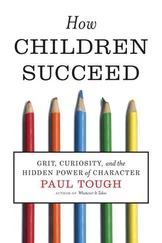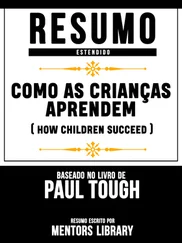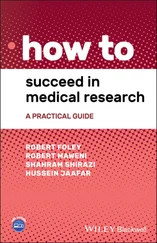16. Myth : Most freelance translators work for one or two clients. Truth : A good way to ensure a steady volume of work is to diversify your client base. It’s a good idea to have at least four to six regular clients who send you work.
17. Myth : You can easily fit freelance work into your spare time. Truth : Freelance translation is a profession, not a hobby. If you want to translate just a couple of hours a week or only when you feel like working, you are probably better off volunteering your services rather than starting a freelance business.
18. Myth : Put up a website and clients will come. Truth : A website can be a great marketing tool for a freelancer, but it’s certainly not enough. Surprisingly, many freelance translators do not have a website at all, so you are ahead of the game if you have a well-done professional website. Just don’t depend on your website to do your marketing for you!
3 An overview of the translation business
3.1 What is a translator?
A translator is a human being who changes written words from one language to another, as opposed to an interpreter, who works with spoken language. If you know that the expression “speaking through a translator” is incorrect (because translators work in writing), you’re already ahead of most people!
Translators are also, by definition, fluent in more than one language. In the language industry, these are referred to as the source , or “from” languages, and the target , or “into” language, which is almost always the translator’s native language. So, for example, a translator who is a native English speaker and speaks German as a second language would translate from German into English. If you work in the most common language pairs, such as English paired with French, Italian, German or Spanish (known as FIGS in the translation industry), chances are that you will never translate into your second or third language, because the translation market in the U.S. is heavily geared toward translators who work into their native language only. If you work in a less common language pair, you might find yourself as the exception to this rule. A client might need a document translated from Thai into English, a job that would usually be handled by a native English speaker who has Thai as a second or third language. In practice, it’s often easier to find a native Thai (or Lingala, Malayalam, Fulani, etc) speaker who has English as a second language since there are many more native Thai speakers who also speak English than the other way around. In this case, the job might be handled by a native Thai speaker, and then proofread by a native English speaker.
In the United States, most translators work from one or two source languages; it’s extremely common for translators to have only one working language pair, like Spanish into English, or Japanese into English. In other areas of the world where foreign languages are more widely studied, most translators work from at least two source languages, and often many more. It’s not at all unusual to find Europe-based translators who work, for example, from English, Spanish and French into German, or from Norwegian, Swedish and English into Danish.
3.2 What does it take to become a translator?
Being multilingual isn’t the only skill a translator needs, but it’s certainly the most important. Translators learn their languages in many different ways; some grew up in bilingual households or countries, some learned their second or third language in school and then pursued experience abroad, some took intensive language courses or worked in a foreign country for several years, and it is also common for translators to become freelancers after working as military or government linguists. Almost all translators working in the U.S. have at least a Bachelor’s degree, although not necessarily in translation. As a rule, most professional translators have at least some experience working and/or living in a country where their source language or languages are spoken; many translators lived and worked in their source language country for many years, or pursued higher education in their source language(s). In-country experience is a big asset for a translator, since translation work involves knowing not just the structure of the language to be translated, but the cultural framework that surrounds it. This isn’t to say that classroom study doesn’t produce excellent translators, but it’s important to realize that to be a successful professional translator, you need near-native proficiency in your source language(s); if you’re starting from scratch, a few semesters of part-time language class won’t be enough. As a point of reference, the U.S. Government’s Defense Language Institute Foreign Language Center offers a program to teach Middle Eastern languages to government employees, and the basic program involves 63 weeks of full-time study.
Translators today work in almost every conceivable language pair; while the market in the United States has historically been very strong in high-volume languages such as French, German, Italian, Portuguese and Spanish, there is a potential market for nearly any language. In most language pairs, the amount of work available is proportionate to the number of translators in the language. While there is obviously a great deal of English to Spanish translation work in the U.S., there are a correspondingly large number of translators in this language combination and a lot of competition from translators who live in countries with a lower cost of living than the U.S. There may not be as much work for translators of Swedish to English, but there are many fewer Swedish translators than Spanish translators living in the U.S., and the cost of living in the U.S. is probably lower than it is in Sweden.
In addition to near-native knowledge of their source language(s), translators need other skills too; probably the most important are excellent writing skills in their target language, in-depth knowledge in one or more areas of specialization and business management skills. Some would-be translators are in practice not very successful because they have weak writing skills in their target language, making their translations difficult or unpleasant to read. Highly specialized translators are among the highest-earning members of the profession; for example a bilingual intellectual property attorney, stock broker or biomedical engineer may earn many times the per-word rate of a “jack of all trades” translator with a B.A. in Russian. Some translators turn a previous career into an area of specialization, while others take additional courses in areas of specialization or learn specialized terminology from more experienced translators. Paradoxically, specializing can also lead to more work, not less, as the specialized translator becomes known as the go-to person in his or her area of expertise, whether it’s environmental engineering, textile manufacturing or annual reports.
The translation industry in the United States has made the transition to the independent contractor model, in which the vast majority of translators are self-employed and work for a variety of clients. As such, translators need business management skills such as the ability to find and retain clients, work on tight deadlines with little supervision or management, handle increases and decreases in work flow and cash flow and perform tasks such as bookkeeping, tax planning, and computer upkeep and maintenance. In fact, most self-employed translators spend 25–50% of their time on non-translation work, largely involving management of the day to day tasks of running a business, so these skills are just as important as translation-related skills in succeeding as a freelance translator.
Читать дальше
![Коринн МакКей How to Succeed as a Freelance Translator [calibre 3.46.0] обложка книги](/books/402693/korinn-makkej-how-to-succeed-as-a-freelance-transl-cover.webp)


![Джон Ирвинг - Našlė vieneriems metams [calibre]](/books/384320/dzhon-irving-naŠle-vieneriems-metams-calibre-thumb.webp)
![Джонатан Димблби - Barbarossa - How Hitler Lost the War [calibre]](/books/385421/dzhonatan-dimblbi-barbarossa-how-hitler-lost-the-w-thumb.webp)







